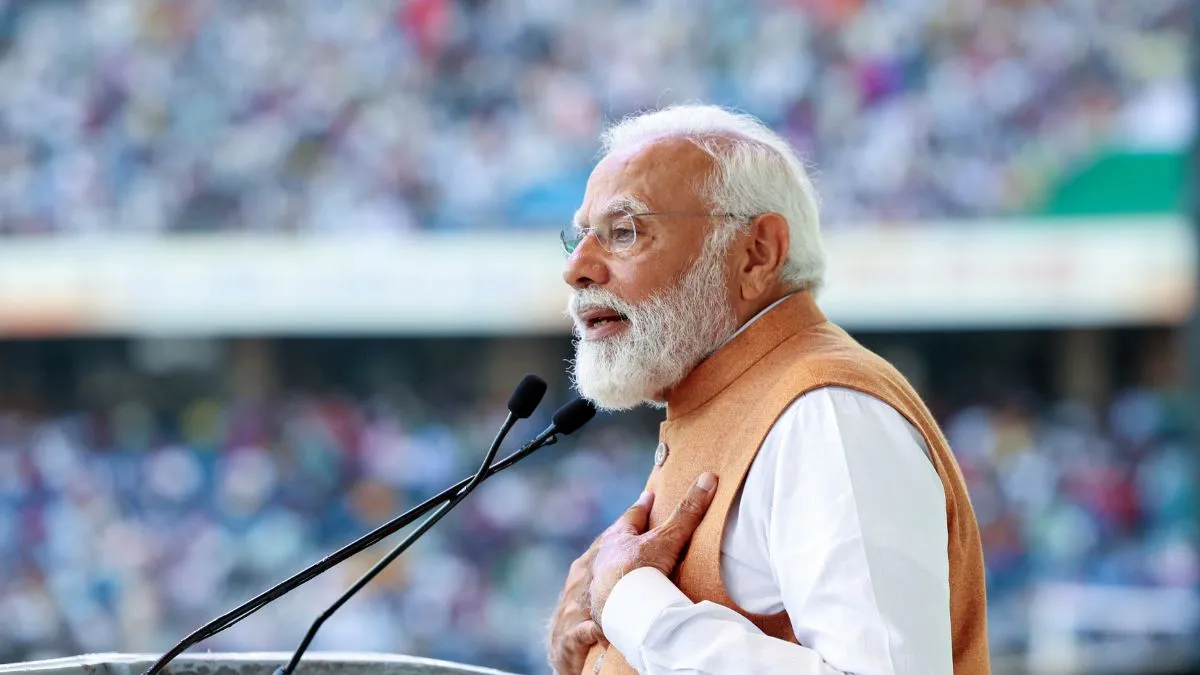- By Aashish Vashistha
- Tue, 03 Dec 2024 04:23 PM (IST)
- Source:JND
Prime Minister Narendra Modi on Tuesday declared the successful implementation of three new criminal laws – the Bharatiya Nyaya Sanhita, Bharatiya Nagarik Suraksha Sanhita, and Bharatiya Sakshya Adhiniyam – in Chandigarh. With this milestone, Chandigarh became the first administrative unit in the country to fully implement these laws.
The three new criminal laws which came into effect on July 1, replaced the decades-old British-era Indian Penal Code (IPC), the Code of Criminal Procedure (CrPC), and the Indian Evidence Act.
Addressing an event in Chandigarh, PM Modi praised the implementation of three new criminal laws, describing them as a significant step towards realizing the ideals envisioned in the Constitution of India. He emphasized that these laws are a concrete move in fulfilling the country's constitutional aspirations.
ALSO READ: Mahakumbh 2025: Temporary District Created For World's Largest Religious Gathering
“It’s (new criminal laws) a concrete step towards fulfilling the ideals that our constitution has imagined for the citizens of our country." PM Modi said.
“In the seven decades after independence, the challenges faced by our judicial system were studied and thought upon. Behavioural aspects of all the laws were analysed. I thank the Supreme Court, judges and High Courts – especially of Punjab and Haryana," he further added.
“The identity of Chandigarh is linked to the powerful form of Maa Chandi, who represents the form of strength through which truth and justice are established. This spirit is also the foundation of Indian justice, civil security, and the pure form of our Constitution," he said.
Earlier today, PM Modi attended a live demonstration in Chandigarh, showcasing a simulated crime scene investigation in line with the newly introduced criminal laws.
PM Modi emphasized that colonial-era laws were used as instruments of oppression and exploitation during British rule in India. He pointed out that the 1857 revolt severely challenged British dominance, prompting the introduction of the Indian Penal Code (IPC) in 1860, followed by the Indian Evidence Act and the Criminal Procedure Code (CrPC).
According to the Prime Minister, the primary aim of these laws was to subjugate Indians, punish them, and maintain their enslavement under British rule.
